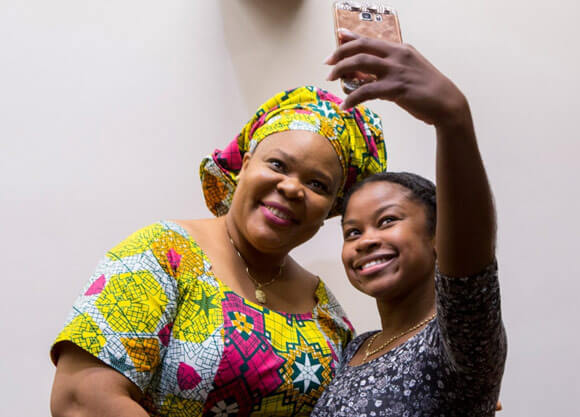
Liberian refugee using skills developed in nursing doctorate program to give back
May 24, 2017

May 24, 2017

While Bestman would enjoy a full recovery, memories of strained communication and a lack of collaboration between health care providers would loom large for her family.
“Access to high quality health care – not just health care, there is a difference – is very difficult for immigrants,” Bestmen said. “I think the lack of cultural competency and holistic care for immigrants and other vulnerable populations is what spurred me toward a career as a family nurse practitioner.”
Bestman earned her bachelor of science degree in nursing in 2012, and has spent the last 5 years working as a registered nurse on the pediatric medical/surgical floor at the Connecticut Children's Medical Center. During that period, she served as a representative on CCMC’s nurse practice council, as well as on several committees dedicated to improving patient care quality and delivery.
It was also during that time she enrolled in our Doctor of Nursing Practice program, in the family nurse practitioner track. Bestman credits the program with teaching her how to be a more effective leader in her profession, and how to produce change at every level within the health care hierarchy.
“Obtaining my DNP from Quinnipiac has definitely prepared me to provide more culturally sensitive and individualized care to my patients,” Bestman said.
The program also gave her a chance to develop new strategies for improving policy and processes. For her doctoral project, Bestman designed and implemented a more structured clinical handoff process for a local pediatric hospital.
“Structured communication between health care providers is necessary not only for ensuring patient safety and high quality care, but also to promoting a healthy work environment for nursing staff,” Bestmen said.
The project was a resounding success, and helped spark numerous other hand-off initiatives within the hospital’s organization.
Going forward, Bestman intends to bring the advanced skills and leadership strategies she developed at Quinnipiac to a local, federally qualified health center.
“I want to provide care for those who are less fortunate, and give back to a community that has given me so much,” she said.
Quinnipiac Today is your source for what's happening throughout #BobcatNation. Sign up for our weekly email newsletter to be among the first to know about news, events and members of our Bobcat family who are making a positive difference in our world.
Sign Up Now